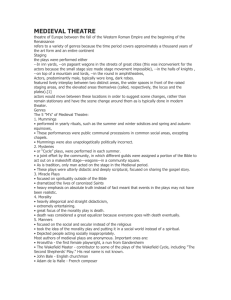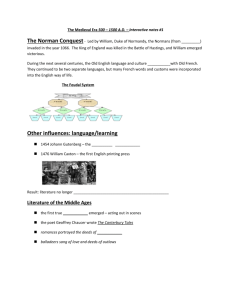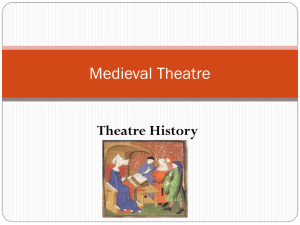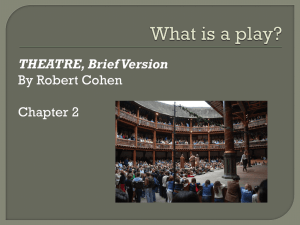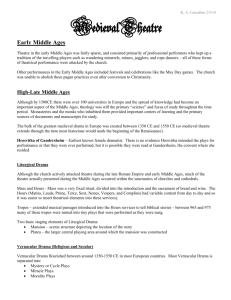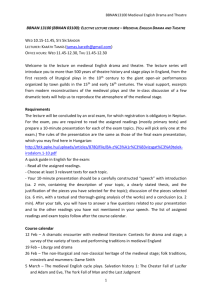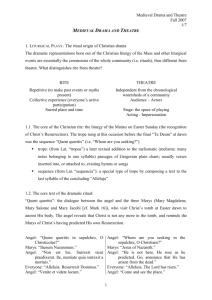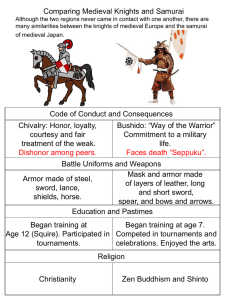Medieval, Renaissance, and Elizabethan Theatre
advertisement
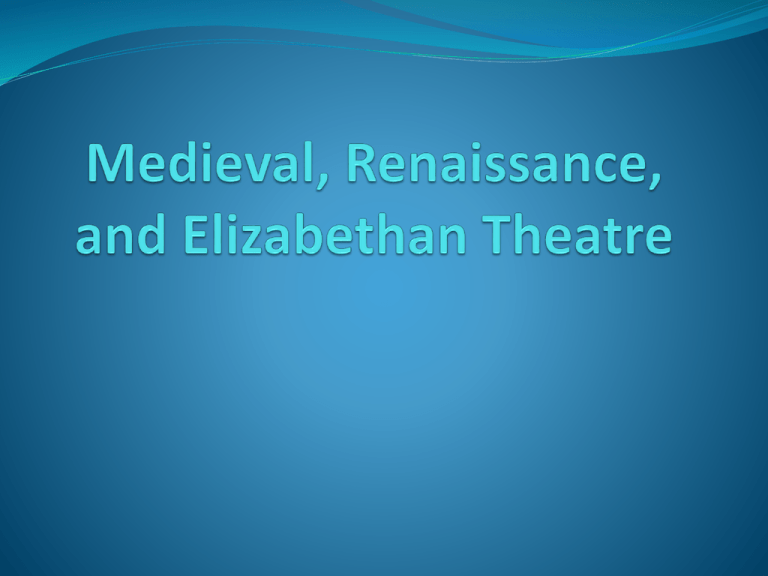
Medieval Theatre: Introduction From 500 to 1500 A.D. After the decline of Roman theatre, there was little respect for actors. Structured plays remained difficult to find. Christians would introduce theatrical performances to the church as a means of worship and teaching the gospel to the mostly illiterate congregation. The priests used performance as a way to teach people who couldn’t read about the events in the Bible and saints’ lives. These were called Miracle and Mystery plays. Medieval Theatre Some groups not associated with the church began performing Miracle and Mystery plays, but they drew criticism from those with church ties, and it was not long before their performances were repressed. However, these pioneers represent the first acting companies and were later recognized and patronized by the nobles. Medieval Theatre Terms to Know Miracle and Mystery Plays: plays based on the saints’ lives and Bible stories Passion Play: a play based on the last week in the life of Christ. Morality Play: similar in theme to Miracle and Mystery plays, yet more concerned with the principles taught by Christianity rather than stories from the Bible. Masque: a spectacular play glorifying the nobility. Medieval Theatre Despite the seriousness of the message and its religious content, the performances tried to be entertaining and added humor whenever possible. Medieval Theatre: Stagecraft They had complicated technical devices and special effects. For example, trap doors were hidden in raised stages so that characters could appear from nowhere or disappear. Some troupes had cranes to fly angels in. Medieval Plays The Second Sheperd’s Play – a religious play a thief named Mak who steals a sheep, hides it in a crib, and passes it off as his son. Everyman – a Morality play in which Everyman is summoned to meet Death, appear before God, and seek salvation. Medieval Quiz Medieval plays were based mainly on stories from_________ and the lives of saints. They were called ______________and ________________plays. 2. Plays based on the last week of Christ’s life were called _________plays. 3. __________________plays taught the difference between right and wrong rather than Christianity itself. 4. A ___________was a glorious spectacle performed for the benefit of nobility. 5. Despite the seriousness of the message, Medieval plays still had a lot of ______________________. 1.
